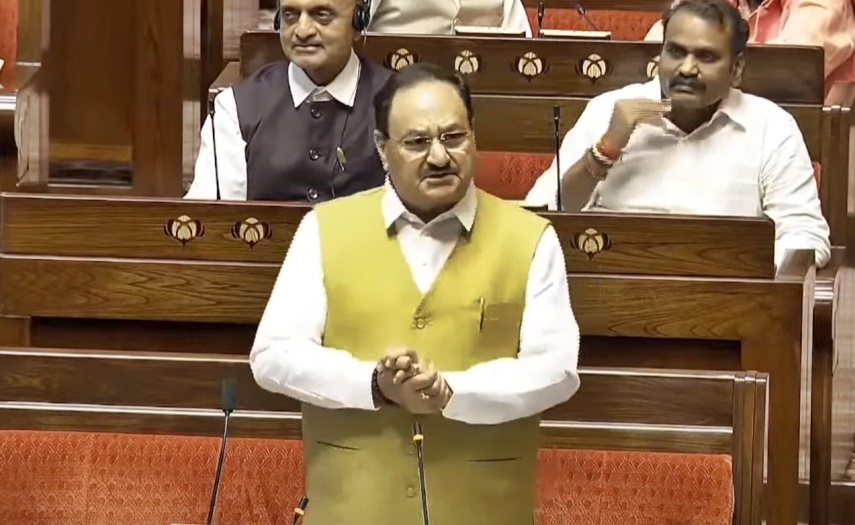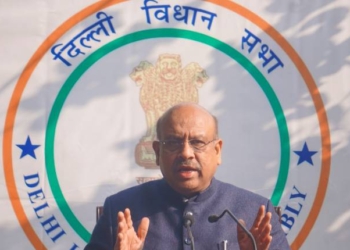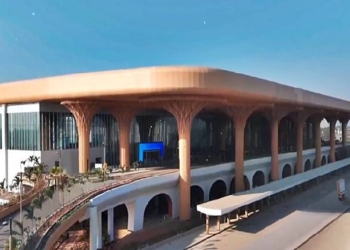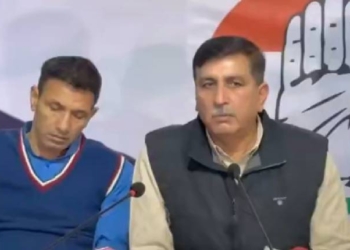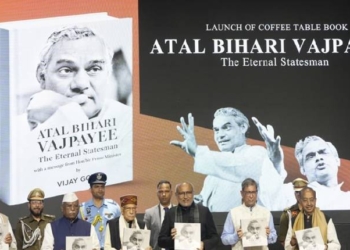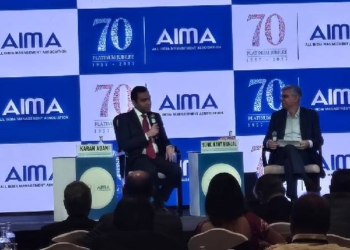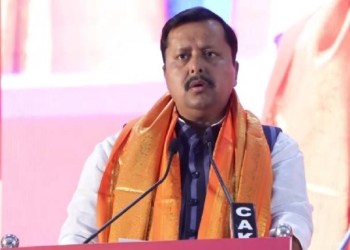New Delhi: Leader of the Rajya Sabha and Union Minister J.P. Nadda came down heavily on the Congress for its handling of the Waqf Act, accusing the grand old party of enacting the law in a way that allegedly facilitated land mafias. Speaking in the Upper House on Thursday, J.P. Nadda passionately defended the proposed amendments to the Waqf Act, stressing the urgent need for reform to protect national interests and prevent the misuse of Waqf properties, which should serve the welfare of poor Muslims.
Spotlighting the national importance of the issue and the need for in-depth deliberation, J.P. Nadda drew attention to the formation of a Joint Parliamentary Committee (JPC) under Prime Minister Narendra Modi-led government.
Comprising 31 members, the committee has facilitated over 200 hours of debate on the bill.
This, he pointed out, stands in stark contrast to the JPC setup during the UPA government in 2013, which had only 13 members and lacked the same level of commitment.
J.P. Nadda asserted that democracy thrives on meaningful discourse and the inclusion of diverse perspectives, rather than simply accepting a single viewpoint.
Underscoring its national significance and the imperative for focused deliberation, leader of Rajya Sabha, the leader of the House, highlighted the formation of a Joint Parliamentary Committee (JPC) under PM Modi-led government, which comprised 31 members and facilitated an extensive 200 hours of debate on the Bill.
This, he noted, was a marked improvement over the JPC established during the UPA government in 2013, which had only 13 members and lacked the same level of commitment.
He emphasised that democracy thrives on logical discourse and the inclusion of diverse perspectives, rather than the mere acceptance of a singular viewpoint.
Sharing insights from Jagdambika Pal, J.P. Nadda revealed that the JPC under PM Modi-led government convened 36 meetings, consulted 284 stakeholders, and visited 10 different locations to gather comprehensive input on the Waqf Bill. “In contrast, the UPA-era JPC engaged with only 18 stakeholders, reflecting a lack of thoroughness,” he pointed out.
This enhanced consultation process, he argued, underscored PM Modi-led government’s dedication to comprehensive deliberation.
J.P. Nadda criticised the opposition for attempting to derail the discussion by introducing irrelevant topics.
He urged members to prioritise the nation’s welfare over party interests, asserting that the Bill is fundamentally in the country’s interest.
Addressing Constitutional concerns, J.P. Nadda explained that under previous regulations, Waqf land claims were shielded from challenges in civil courts, which he deemed a violation of constitutional principles.
He stated that the Waqf Amendment Bill seeks to rectify this by empowering district collectors to determine rightful ownership of properties and explicitly excluding lands under the Archaeological Survey of India (ASI) from Waqf claims. This, he noted, was a pivotal reform.
Turning to social issues, he accused the opposition of neglecting the plight of Muslim women. He criticised the Congress-led UPA government for delaying action on the Supreme Court’s recommendation to ban “triple talaq,” describing it as a clear instance of reducing Muslim women to second-class citizens.
He pointed out that countries like Turkey abolished triple talaq as early as 1929, and other Muslim-majority nations had followed suit.
This reform, he stated, was finally enacted in India under Prime Minister Narendra Modi’s leadership, empowering Muslim women.
Amid uproar, the Leader of the House, also raised concerns, about the identification of government properties as waqf properties, questioning how temples, lakes, and other government assets were declared as such.
He highlighted the alarming increase in Waqf properties, from 4.95 lakh in 2013 to 8.59 lakh in 2024, while financial implications rose marginally from Rs 163 crore in 2013 to Rs 166 crore.
He referred to the Comptroller and Auditor General (CAG) report of 2018, which raised questions about the management and misuse of Waqf properties.
The misuse of Waqf claims was another focal point of his speech as he mentioned that representatives from Kerala churches and politicians had approached Delhi to discuss Waqf-related issues in the national capital.
He cited an example from Wayanad, where 4.7 acres of land were claimed as Waqf property. Expressing concern, he remarked that people from Wayanad had come to Delhi seeking intervention, questioning whether they had lost trust in their Parliamentarian.
The Union Minister also accused the Congress party of alleged “involvement with land mafias”, urging them to “distance themselves now” from such activities and focus on the welfare of poor Muslims, particularly in the realm of education.
He quoted various sub-sections and clauses to demonstrate how the law-governing Waqf properties had gone astray between 2013 and 2025, enabling exploitation by land mafias.
Expressing concern over a new trend where individuals deliver speeches and leave without engaging further, the Leader of the House maintained patience and humility despite interruptions during his address.
He urged his colleagues to reflect on the issues at hand and concluded with a call for wisdom and realisation. He emphasised the need for collective efforts to address the challenges posed by waqf property management and misuse.
In his closing remarks, J.P. Nadda stressed that Waqf properties should primarily benefit the underprivileged and not be misused.
He expressed concern over the misuse of Waqf properties, which increased by 3 lakh acres after the 2013 bill.
This, he argued, necessitated amendments to ensure accountability and proper utilisation of these lands. He called for collective responsibility to address these challenges and urged support for the Waqf Amendment Bill to advance the nation’s welfare.
(IANS)




